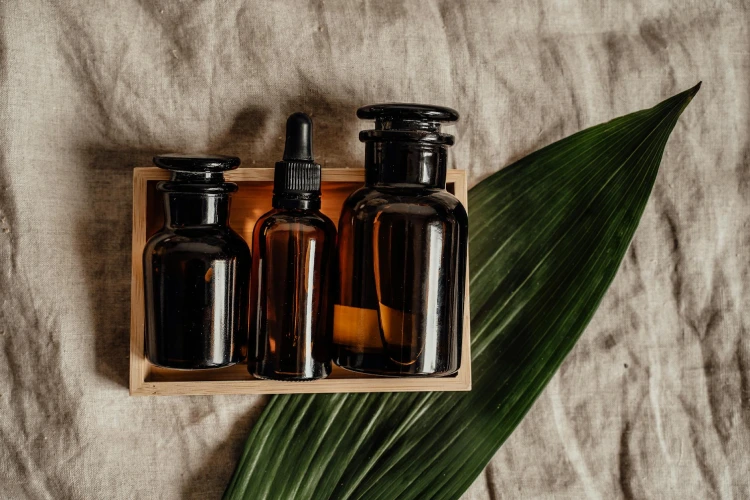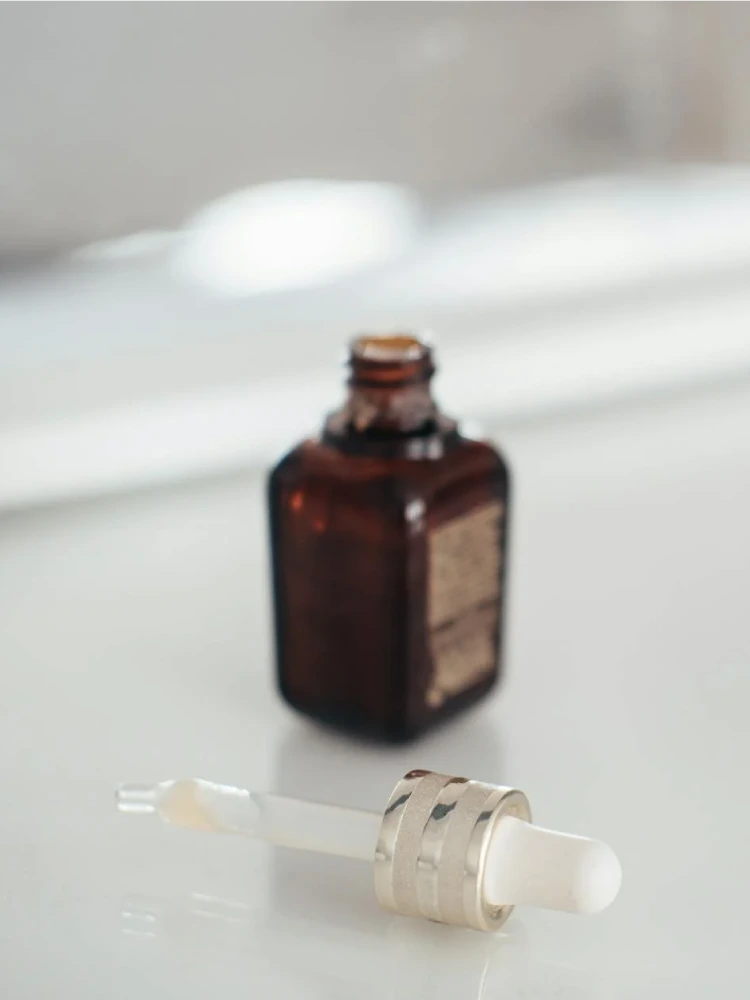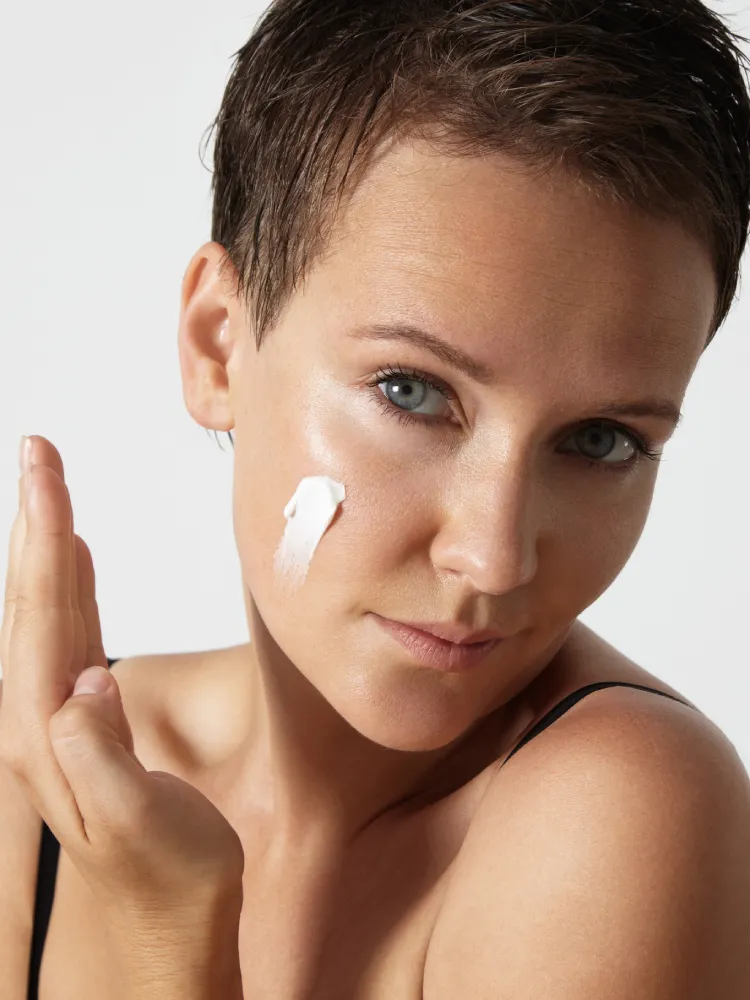How to Choose the Best Anti-Aging Serum for Your Skin
Choosing the right anti-aging serum can feel like navigating a maze. With countless options on the market, each promising to turn back the clock, it’s easy to feel overwhelmed. But don’t worry, you’re not alone in this quest for youthful skin. The right serum can make a world of difference, not just in how you look, but in how you feel.
Anti-aging serums are a crucial part of any skincare routine, offering concentrated doses of active ingredients that target fine lines, wrinkles, and other signs of aging. However, finding the perfect match for your skin type requires a bit of knowledge and guidance. This article will help you cut through the noise and choose a serum that truly works for you, ensuring your skin gets the care it deserves.
Understanding Anti-Aging Serums
When it comes to maintaining youthful skin, anti-aging serums are a game-changer. These potent elixirs are packed with active ingredients designed to combat the signs of aging. But what exactly are they, and how do they work? Let’s break it down.
What Are Anti-Aging Serums?
Anti-aging serums are lightweight, fast-absorbing liquids that deliver a high concentration of active ingredients to the skin. Unlike creams or lotions, serums are formulated to penetrate deeper into the skin, targeting specific concerns like fine lines, wrinkles, and age spots. These serums often contain ingredients like:- Retinol: A form of Vitamin A that boosts collagen production and speeds up cell turnover.
- Hyaluronic Acid: A powerful hydrator that plumps up the skin.
- Vitamin C: An antioxidant that brightens the skin and reduces pigmentation.
- Peptides: Short chains of amino acids that help build proteins in the skin.

Photo by Alesia Kozik
Key Benefits of Using Anti-Aging Serums
Using an anti-aging serum can bring a multitude of benefits to your skincare routine. Here are some of the key advantages:
- Reduces Fine Lines and Wrinkles: Ingredients like retinol and peptides stimulate collagen production, which helps to smooth out fine lines and wrinkles.
- Improves Skin Texture: Serums can help to refine the skin’s texture, making it feel smoother and more even.
- Boosts Hydration: Hyaluronic acid and other hydrating ingredients ensure that your skin stays plump and moisturized.
- Brightens Skin Tone: Antioxidants like Vitamin C can help to fade dark spots and give your skin a radiant glow.
- Protects Against Environmental Damage: Many serums contain antioxidants that protect the skin from free radicals and environmental stressors.
How Anti-Aging Serums Work
Anti-aging serums work by delivering active ingredients deep into the skin, where they can be most effective. Here’s a closer look at how they achieve this:
- Deep Penetration: The lightweight, liquid formula of serums allows them to penetrate deeper into the skin compared to heavier creams.
- High Concentration of Actives: Serums are packed with a higher concentration of active ingredients, which means they can deliver more potent results.
- Targeted Treatment: Because they are designed to address specific skin concerns, serums can provide targeted treatment for issues like wrinkles, pigmentation, and loss of firmness.
By incorporating an anti-aging serum into your daily skincare routine, you can effectively target and treat the signs of aging, helping to maintain a youthful and radiant complexion.
Key Benefits of Using Anti-Aging Serums
Using an anti-aging serum can bring a multitude of benefits to your skincare routine. Here are some of the key advantages:
- Reduces Fine Lines and Wrinkles: Ingredients like retinol and peptides stimulate collagen production, which helps to smooth out fine lines and wrinkles.
- Improves Skin Texture: Serums can help to refine the skin’s texture, making it feel smoother and more even.
- Boosts Hydration: Hyaluronic acid and other hydrating ingredients ensure that your skin stays plump and moisturized.
- Brightens Skin Tone: Antioxidants like Vitamin C can help to fade dark spots and give your skin a radiant glow.
- Protects Against Environmental Damage: Many serums contain antioxidants that protect the skin from free radicals and environmental stressors.
How Anti-Aging Serums Work
Anti-aging serums work by delivering active ingredients deep into the skin, where they can be most effective. Here’s a closer look at how they achieve this:
- Deep Penetration: The lightweight, liquid formula of serums allows them to penetrate deeper into the skin compared to heavier creams.
- High Concentration of Actives: Serums are packed with a higher concentration of active ingredients, which means they can deliver more potent results.
- Targeted Treatment: Because they are designed to address specific skin concerns, serums can provide targeted treatment for issues like wrinkles, pigmentation, and loss of firmness.
By incorporating an anti-aging serum into your daily skincare routine, you can effectively target and treat the signs of aging, helping to maintain a youthful and radiant complexion.
Identifying Your Skin Type
Before you can choose the best anti-aging serum, it’s crucial to understand your skin type. Knowing your skin type helps you select products that will work best for you, ensuring you get the most out of your skincare routine. Let’s explore the different skin types and how you can determine yours.
Different Skin Types and Their Characteristics
Understanding the characteristics of different skin types can help you identify your own. Here are the main skin types and their key features:
- Normal Skin: Balanced, not too oily or dry. Few imperfections, no severe sensitivity, and a radiant complexion.
- Oily Skin: Shiny appearance, especially in the T-zone (forehead, nose, and chin). Prone to blackheads, pimples, and enlarged pores.
Dry Skin: Dull, rough complexion. Less elasticity, more visible lines, and red patches. Skin can feel tight and may flake. - Combination Skin: A mix of oily and dry areas. Typically, the T-zone is oily, while the cheeks are dry or normal.
- Sensitive Skin: Easily irritated, prone to redness, itching, and dryness. May react to certain products or environmental factors.
How to Determine Your Skin Type
Identifying your skin type is easier than you might think. Follow these steps to get a clear understanding of your skin:
- Cleanse Your Face: Start with a gentle cleanser to remove any makeup, dirt, and oil. Pat your face dry with a clean towel.
- Wait for an Hour: Allow your skin to return to its natural state. Avoid touching your face during this time.
- Observe Your Skin: After an hour, take a close look at your skin in the mirror. Pay attention to how it feels and looks.
- Blotting Test: Press a clean tissue or blotting paper on different areas of your face. Check for oil residue.
Based on your observations, you can determine your skin type:
- Normal Skin: Feels comfortable, not too oily or dry. Tissue shows little to no oil.
- Oily Skin: Feels greasy, especially in the T-zone. Tissue shows significant oil.
- Dry Skin: Feels tight and may have flaky areas. Tissue shows little to no oil.
- Combination Skin: T-zone is oily, but cheeks are dry or normal. Tissue shows oil in the T-zone only.
- Sensitive Skin: Feels irritated, red, or itchy. May react to the cleanser used.
Understanding your skin type is the first step in choosing the right anti-aging serum. By knowing whether your skin is oily, dry, normal, combination, or sensitive, you can select products that cater to your specific needs, ensuring better results and healthier skin.
Key Ingredients to Look For in an Anti-Aging Serum
Choosing the right anti-aging serum involves paying close attention to the ingredients list. The effectiveness of your serum largely depends on the key active ingredients it contains. Let’s explore some of the most potent ingredients you should look for.
Retinol and Its Derivatives
Retinol, a form of vitamin A, is a superstar in the world of anti-aging skincare. It works by increasing skin cell turnover and boosting collagen production, which helps to reduce the appearance of fine lines and wrinkles. Retinol can also unclog pores and exfoliate the skin, leading to a smoother and more even complexion.
For more detailed information on how retinol benefits the skin, check out How Does Retinol Work? and Retinol: Benefits and Uses.
Hyaluronic Acid
Hyaluronic acid is a hydration powerhouse. It’s naturally found in the skin and has the unique ability to retain water, keeping your skin moisturized and plump. This ingredient helps to diminish the appearance of fine lines and wrinkles by providing intense hydration and enhancing the skin’s barrier function.
Learn more about the benefits of hyaluronic acid for your skin by visiting Hyaluronic Acid: Skin Benefits and Hyaluronic Acid: What It Is.
Vitamin C
Vitamin C is a potent antioxidant that can help brighten your skin and reduce the appearance of dark spots. It also plays a crucial role in collagen synthesis, which can improve skin firmness and reduce wrinkles. Additionally, vitamin C helps protect the skin from environmental damage caused by free radicals.
For additional insights on vitamin C’s role in skincare, visit The Benefits of Vitamin C for Your Skin and Why is topical vitamin C important for skin health?.
Peptides
Peptides are short chains of amino acids that act as building blocks for proteins like collagen and elastin. By applying peptides topically, you can stimulate collagen production, which helps to improve skin texture, firmness, and elasticity. Peptides can also enhance the skin’s repair processes and reduce inflammation.
Discover more about how peptides can benefit your skin at Peptides and Your Skin Care Routine and What Are Peptides and What Do They Do for Skin?.

Photo by Anete Lusina
Other Beneficial Ingredients
Beyond retinol, hyaluronic acid, vitamin C, and peptides, there are other ingredients that can boost your anti-aging regimen:
- Ferulic Acid: An antioxidant that enhances the stability and effectiveness of vitamins C and E.
- Niacinamide (Vitamin B3): Helps improve skin elasticity, enhance the skin barrier, and even out skin tone.
- Alpha Hydroxy Acids (AHAs): Such as glycolic acid, help exfoliate the skin and improve texture.
Ceramides: Essential for maintaining the skin barrier and retaining moisture.
To learn more about the most effective ingredients in anti-aging serums, read Anti-Aging Serum: 6 Most Effective Ingredients and Skin Care Ingredients With Anti-Aging Effects.
By understanding these key ingredients, you’ll be better equipped to choose an anti-aging serum that meets your skin’s needs and helps maintain a youthful complexion.
How to Choose the Right Anti-Aging Serum
Selecting the perfect anti-aging serum can be a daunting task, but it doesn’t have to be. By understanding your skin’s needs and knowing what to look for, you can find a serum that will help you achieve a youthful, radiant complexion. Let’s break down the key factors to consider.
Matching Ingredients to Skin Concerns
Different ingredients in anti-aging serums target specific skin issues. Knowing which ingredients address your particular concerns can make all the difference.
- Fine Lines and Wrinkles: Look for serums with retinol or peptides. Retinol boosts collagen production and speeds up cell turnover, while peptides help build proteins in the skin.
- Dark Spots and Pigmentation: Vitamin C is your go-to ingredient. It brightens the skin and reduces pigmentation.
- Dryness and Dehydration: Hyaluronic acid is a powerful hydrator that plumps up the skin and retains moisture.
- Loss of Firmness: Ingredients like niacinamide and ferulic acid can improve skin elasticity and firmness.
By matching the ingredients to your skin concerns, you can choose a serum that effectively targets your specific needs.
Reading Product Labels and Reviews
Interpreting product labels and reading user reviews are crucial steps in choosing the right anti-aging serum.
- Check the Ingredients List: Look for the active ingredients mentioned earlier. Ensure they are listed near the top, indicating a higher concentration.
- Understand the Claims: Be wary of products that promise overnight results. Effective anti-aging serums take time to show results.
- Read User Reviews: Reviews can provide insights into how the product works for others with similar skin concerns. Look for detailed reviews that mention the user’s skin type and specific results.
Taking the time to read labels and reviews can help you make an informed decision and avoid products that may not deliver on their promises.

Photo by Soheil Kmp
Consulting with a Dermatologist
Seeking professional advice can be incredibly beneficial when choosing skincare products.
Personalized Recommendations: A dermatologist can provide personalized recommendations based on your skin type and concerns.
- Avoiding Irritation: They can help you avoid ingredients that may cause irritation or adverse reactions.
- Professional Treatments: Sometimes, over-the-counter products aren’t enough. A dermatologist can suggest professional treatments that complement your skincare routine.
Consulting with a dermatologist ensures that you are using products that are safe and effective for your skin, helping you achieve the best possible results.
By considering these factors, you can confidently choose an anti-aging serum that will help you maintain a youthful and radiant complexion.
Recommended Anti-Aging Serums
Here are products from our partner ZO® by Dr. Obaji:
Wrinkle & Texture Repair: Wrinkle + Texture Repair uses a microemulsion delivery system to deliver high-potency retinol, restoring natural hydration and visibly improving wrinkles and skin texture.
Growth factor: Growth Factor Serum combines plant and enzymatically derived growth factors with a unique protein complex, clinically proven to enhance skin thickness, elasticity, smoothness, and suppleness.
Firming Serum: This anti-aging breakthrough enhances skin structure and shape. Its mild, lightweight, and tolerable formulation is suitable for all skin types and sensitive areas, reinforcing skin health and hydration to visibly improve elasticity and firmness.
AOX serum: A concentrated antioxidant serum that protects against pollution and premature aging, while visibly brightening the skin with a subtle, luminous, and soft-focus finish.
Daily Power Defense: Daily Power Defense, enhanced with ZO’s exclusive technologies including the new ZPOLY™ complex, promotes a long-lasting youthful and healthy complexion. This advanced serum is clinically proven to strengthen the skin’s protective barrier while defending against environmental stressors and premature aging.
Conclusion
Choosing the right anti-aging serum is a pivotal step in maintaining youthful, radiant skin. By understanding your skin type and specific concerns, you can select a serum that addresses your unique needs. Key ingredients like retinol, hyaluronic acid, vitamin C, and peptides play crucial roles in targeting fine lines, wrinkles, and other signs of aging.
Patience and consistency are essential. Skincare is a journey, not a sprint. Results take time, but with regular use, the right serum can transform your skin. Stay committed to your routine, and you’ll see the benefits unfold, revealing a healthier, more youthful complexion.

